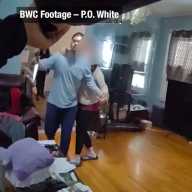“Phoenix,” from the great German filmmaker Christian Petzold, looks like a noir thriller but feels like a horror picture.
That has a lot to do with its setting — Berlin in the immediate wake of World War II — and the ways Petzold’s camera absorbs images of the decay and rubble as everyday citizens begin the rebuilding process on lonely streets.
And it has even more to do with a premise illustrating the reality that traumas such as the concentration camp survived by protagonist Nelly Lenz (Nina Hoss) linger long after liberation.
Nelly has returned home badly disfigured. After a facial reconstruction, she is swept up in intrigue involving her long-lost husband Johnny (Ronald Zehrfeld), who does not recognize her, that further renders obsolete her most preciously held truths.
It’s all predicated on a mood of sadness and loss, on the inescapable reality that what once was can never be again for these characters.
The shadows draped over the lamp-lit streets, the worn-out basement apartments, the rampant destruction, the burlesque club of the picture’s title filled with individuals in search of escape: death lingers over it all.
The movie constraints Nelly in a labyrinth of mistaken identity, from which she could extricate herself with a single conversation.
That might seem grating in a different movie, but it plays correctly in “Phoenix,” as the sheer magnitude of what Nelly has experienced is evident and deeply felt in Hoss’ every sad glance and hesitant gesture.
Petzold finds a new way to capture the emotional truth of this milieu, presenting Nelly’s quest to reclaim her life with her husband with the context of the most painful, universal human desires: a longing for a time gone by that can never be again.


































